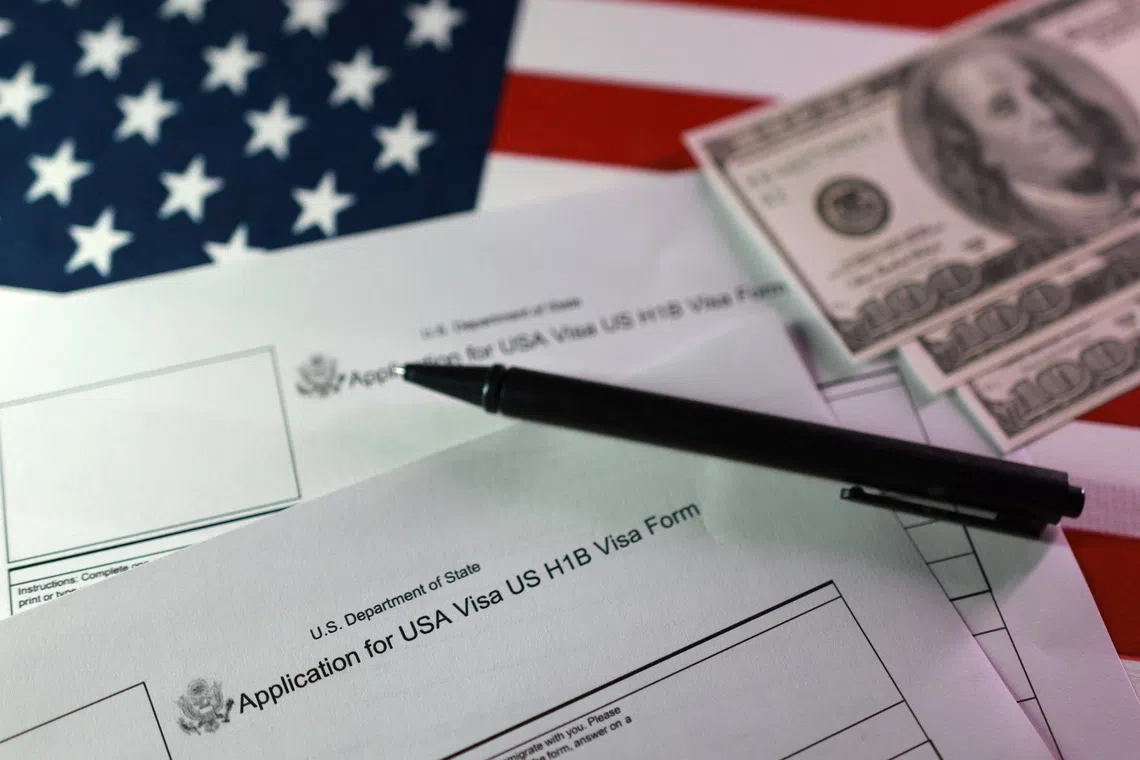Trump’s H-1B visa fee increase raises US doctor shortage concerns
Sign up now: Get ST's newsletters delivered to your inbox

The US Department of Homeland Security is reviewing policy changes that would increase the cost of applying for H-1B visas to as much as $128,700.
PHOTO: REUTERS
The Trump administration’s plan to dramatically raise fees for H-1B visas
The US Department of Homeland Security is reviewing policy changes that would increase the cost of applying for H-1B visas to as much as US$100,000 (S$128,700) from the current highest cost of US$4,500.
The H-1B programme allows US employers to hire foreign workers in specialty fields like technology, engineering, medicine, and academia.
The visas are widely used by the US healthcare sector to recruit international medical graduates or foreign-trained doctors and other professionals trained abroad.
The American Academy of Family Physicians (AAFP) emphasised that international medical graduates account for more than one-fifth of practising family doctors and are disproportionately likely to serve in rural areas.
Fee increase impact on doctor numbers
US Citizenship and Immigration Services reported that in fiscal year 2025, there were about 442,000 unique H-1B visa beneficiaries across all sectors, with 5,640 petitions approved in the healthcare and social assistance industry alone.
The influential American Medical Association warned that fees as high as US$100,000 could choke off the international physician pipeline.
“With the US already facing a shortage of doctors, making it harder for international medical graduates to train and practise here means patients will wait longer and drive farther to get care,” said AMA President Bobby Mukkamala.
Hospital and doctor groups warned that the fee increase could sharply reduce the number of foreign-trained doctors entering the US system.
For many hospitals already stretched thin, that could also mean fewer specialists and higher burdens on domestic medical staff.
The American Hospital Association said hospitals rely on the programme as a short-term measure to fill gaps in the workforce.
“The H-1B visa programme plays a critical role in allowing the hospital field to recruit highly skilled physicians and other healthcare professionals to ensure access to care for communities and patients,” an AHA spokesperson said, adding that the group is pushing for exemptions to the increase for healthcare personnel.
AAFP said: “Nearly 21 million Americans live in areas of the US where foreign-trained physicians account for at least half of all physicians.”
Many hospital systems have been contending with staffing pressures since the Covid-19 pandemic.
Several, including OhioHealth, Cleveland Clinic, Cedars-Sinai, and Mass General Brigham told Reuters they are assessing what the administration’s changes will mean for their operations.
The US could be short 13,500 to 86,000 physicians by 2036 as demand grows faster than supply, according to the Association of American Medical Colleges. REUTERS


